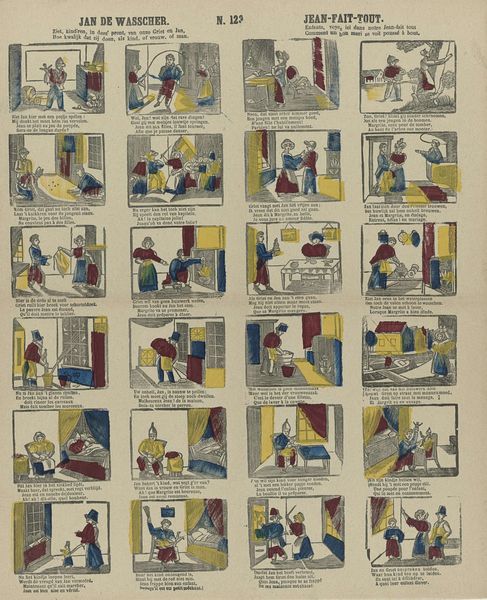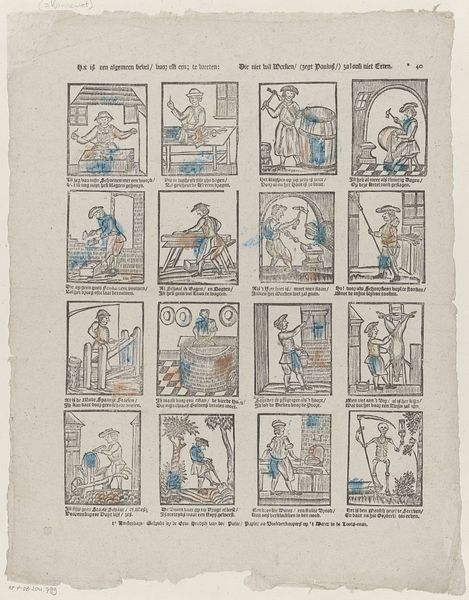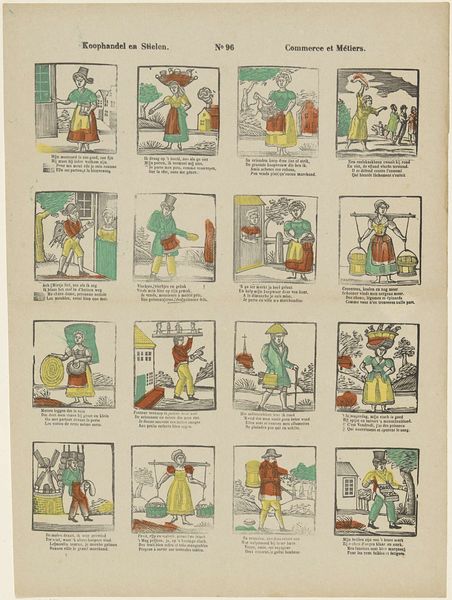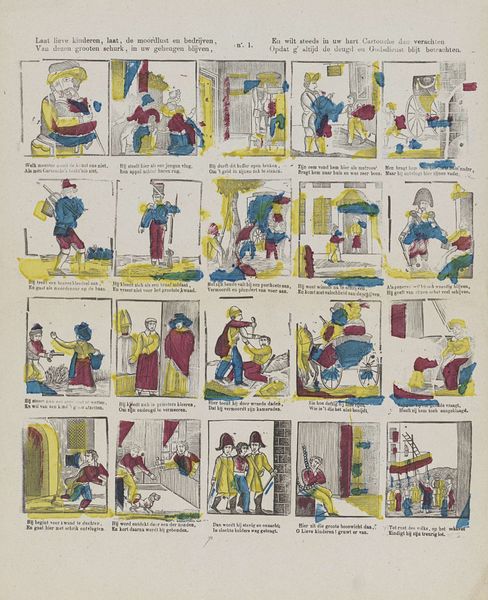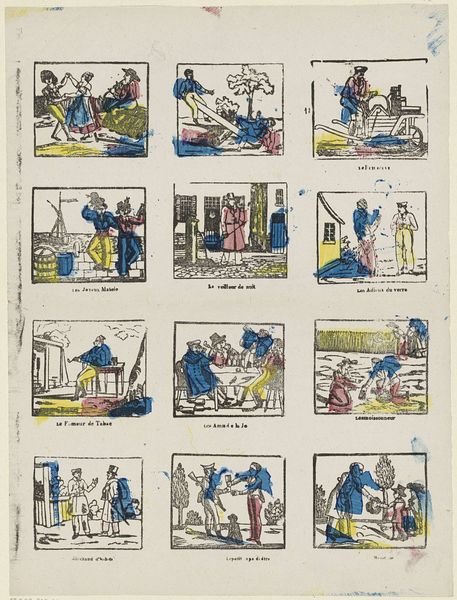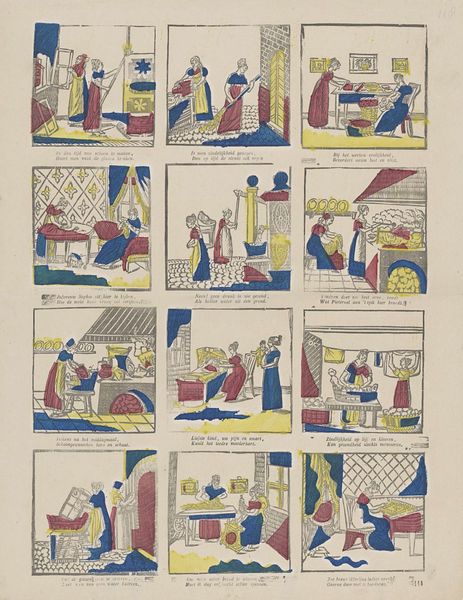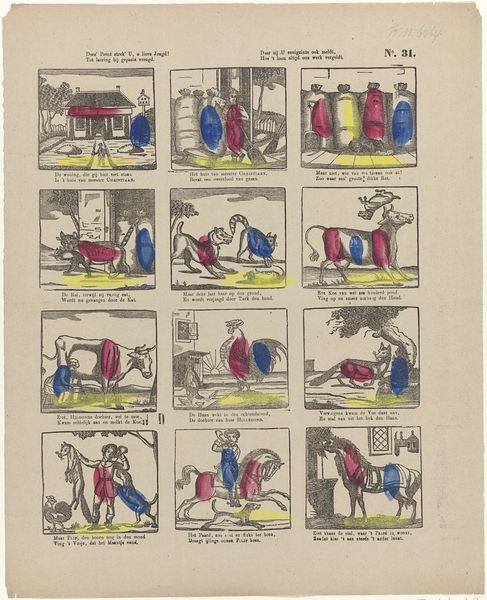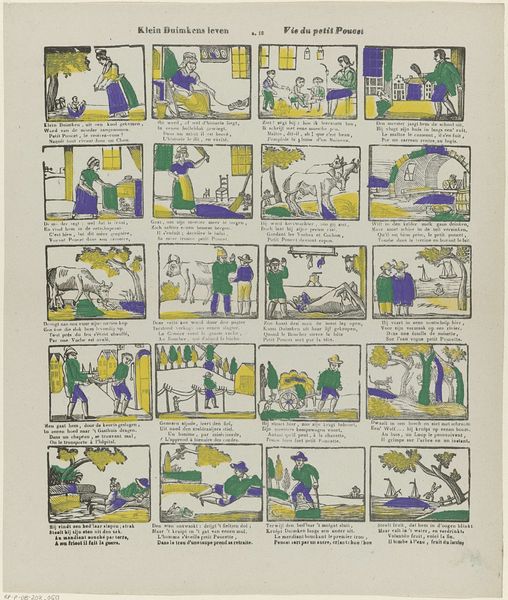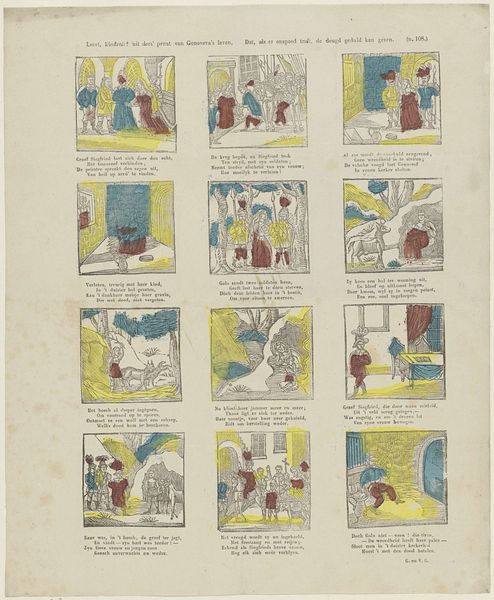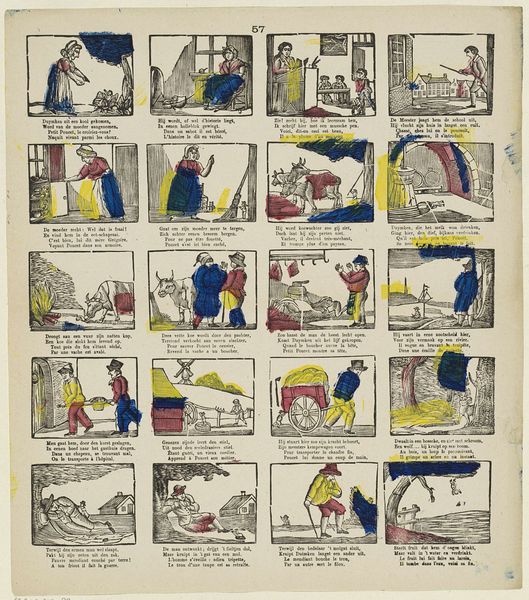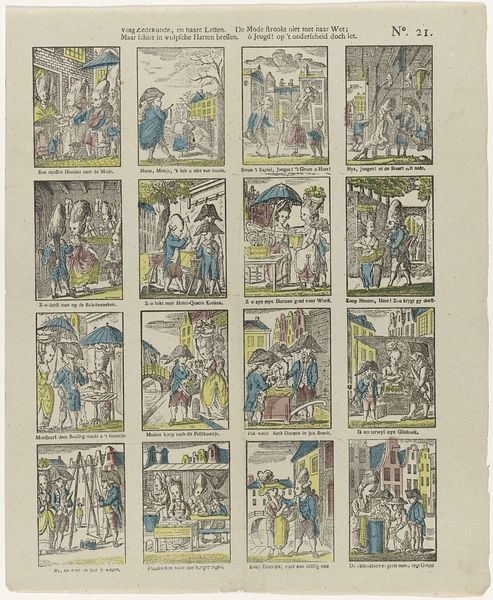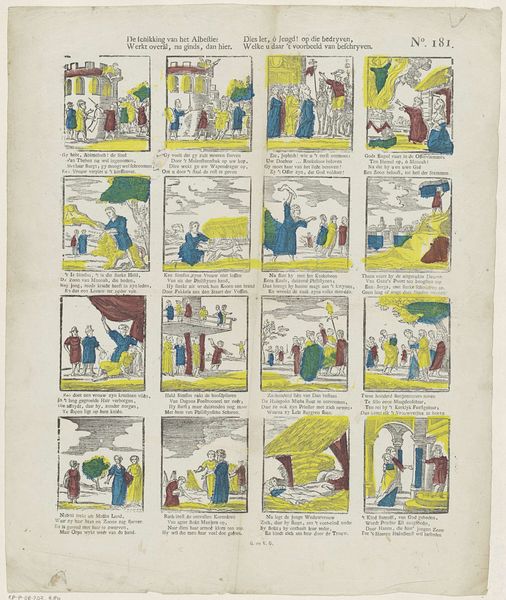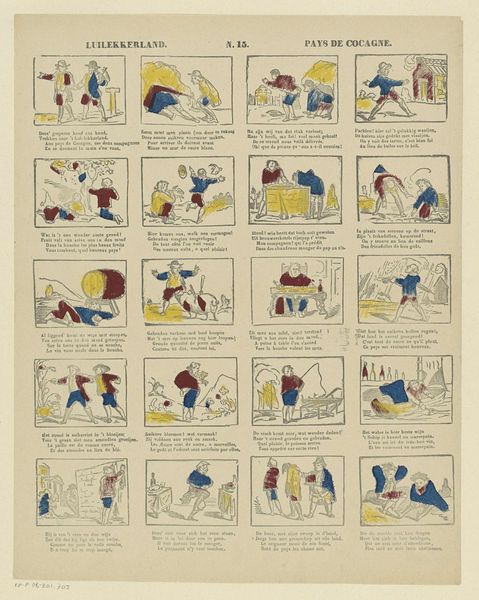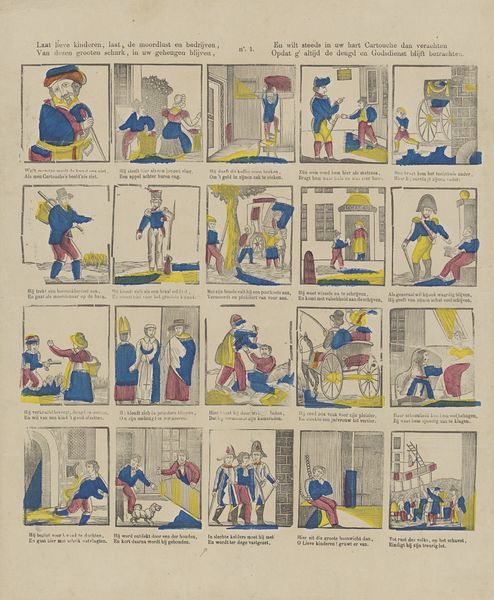
Zie, lieve jeugd, deez' prentjes staan, / Die elk afzonderlijk vertoonen / Iets van de menschelijke daán, / Die men zoo daaglijks bij kan wonen 1833 - 1856
0:00
0:00
print, engraving
#
comic strip sketch
#
narrative-art
#
dutch-golden-age
# print
#
folk-art
#
genre-painting
#
engraving
Dimensions: height 392 mm, width 317 mm
Copyright: Rijks Museum: Open Domain
Editor: Here we have "Zie, lieve jeugd, deez' prentjes staan..." which translates roughly to "Look, dear youth, these prints stand...", created by Glenisson & Van Genechten between 1833 and 1856. It's a print, seemingly made up of little scenes. It reminds me of a very early comic strip. What strikes you when you look at this? Curator: I immediately focus on the method of production. This wasn't created for the elite; engraving and printmaking made imagery accessible to a wider audience. Notice the deliberate simplicity. It challenges the boundary between "high art" and the everyday visual culture produced for and by the common person. It appears that each little frame captures elements of daily labor. Editor: So, it’s less about individual artistic genius and more about…labor? How so? Curator: Precisely! The act of making itself becomes a key point. This print probably served an educational purpose, maybe even a form of inexpensive entertainment. Considering the social context, how does it relate to larger shifts in the nineteenth century regarding access to literacy and visual culture? Consider also how these depictions of labor reinforce or challenge prevailing social norms for labor. Is it celebrating work, or simply reflecting its pervasive presence in daily life? Editor: I see. So instead of asking what the artist *meant*, we’re looking at how the materials and production reflect society's values? It gives you so much context about the 19th century through the lens of how things were produced! Curator: Exactly! By analyzing the labor and means behind it, this seemingly simple print reveals the complexities of a changing society.
Comments
No comments
Be the first to comment and join the conversation on the ultimate creative platform.
